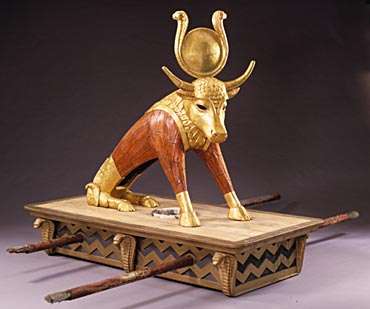“Ruminations”
Ok . . . I’m back
 So, when you are the big-picture, philosopher wanna-be-type, certain questions can be bigger than you. These questions can take months to work through.
So, when you are the big-picture, philosopher wanna-be-type, certain questions can be bigger than you. These questions can take months to work through.
Hence, Spring 2011 . . . :).
Regardless, for all eight who read my blog, we’re back online. Things to come:
– Daily Theocentrisms
– A section that my brother Jason will be feeding me with – The Pulse of the Blogosphere
– A new regular devotion out of The Valley of Vision: A Collection of Puritan Prayers
-Sovereign Christ Church – the church plant updates and upcoming events
As a results of working through some things I want to start with something that might get me in trouble. Sorry . . .
DailyTheocentrism: Jesus was 100% Man during the Incarnation, but not like any other man . . .
I have heard it said time and again that Jesus was a man just like us, often times because of passages like Luke 2:52. However, when I read passages like John 1:1-18, Colossians 1:15-20, Hebrews 1:1-3 I do not get that sense. See what you think on one of them:
1 In the beginning was the Word, and the Word was with God, and the Word was God.
2 He was in the beginning with God.
3 All things came into being through Him, and apart from Him nothing came into being that has come into being.
4 In Him was life, and the life was the Light of men.
5 The Light shines in the darkness, and the darkness did not comprehend it.
6 There came a man sent from God, whose name was John.
7 He came as a witness, to testify about the Light, so that all might believe through him.
8 He was not the Light, but he came to testify about the Light.
9 There was the true Light which, coming into the world, enlightens every man.
10 He was in the world, and the world was made through Him, and the world did not know Him.
11 He came to His own, and those who were His own did not receive Him.
12 But as many as received Him, to them He gave the right to become children of God, even to those who believe in His name,
13 who were born, not of blood nor of the will of the flesh nor of the will of man, but of God.
14 And the Word became flesh, and dwelt among us, and we saw His glory, glory as of the only begotten from the Father, full of grace and truth.
15 John testified about Him and cried out, saying, “This was He of whom I said, ‘He who comes after me 1has a higher rank than I, for He existed before me.’ ”
16 For of His fullness we have all received, and grace upon grace.
17 For the Law was given through Moses; grace and truth were realized through Jesus Christ.
18 No one has seen God at any time; the only begotten God who is in the bosom of the Father, He has explained Him.
John and Paul and the author of Hebrews do not seem to have that sense – namely that Jesus is just like us, in any way. He was presented temptation, just like us – but He was not/did not respond/ did not end up to be “just like us.”
Maybe, in light of ALL of Scripture, we might see this for what it is: a product of Western Modernity upon the text when we hear of a Jesus, just like us; a Jesus who grew in progressive knowledge of His own deity/lordship/sonship.
Read here for more on this, especially in the section entitled, Narrative Flow:
DailyTheocentrism: Some of the most ironic words spoken: Exodus 32 – “. . . make for us gods . . .”
A brother has reminded me of this passage in Exodus 32 today and I think again on the ridiculous nature of idolatry. Speaking to Aaron, a man, they said, “Come, make us (a) god(s) who will . . .” This is the great irony – a man is to make a (so-called) god. God is not a man (Numbers 23:19, 1 Samuel 15:29, Job 9:32) and He does not dwell in what we build (Acts 7:48, 17:24). Yet, the people asked Aaron to MAKE a god for them – not to mention the Living God that just brought them out of the world super-power with tremendous signs and wonders – they asked Aaron to make a god for them . . . and he does.
DailyTheocentrism: Trusting in God’s provision means rejecting functional deism
 I am the 5th of 5 brothers and we are all somewhat of a mess – I mean, we’re boys. #3 (Tim) and I were talking about trusting in God’s provision the other day. He has had some deep struggles lately and we have been put on extreme lean living lately. Both of us realized that our trust in God had been limited to trusting in Him as a goto Guy, not a complete Sovereign Provider. We were living a form of functional deism.
I am the 5th of 5 brothers and we are all somewhat of a mess – I mean, we’re boys. #3 (Tim) and I were talking about trusting in God’s provision the other day. He has had some deep struggles lately and we have been put on extreme lean living lately. Both of us realized that our trust in God had been limited to trusting in Him as a goto Guy, not a complete Sovereign Provider. We were living a form of functional deism.
Let me explain.
DailyTheocentrism: Omnipresence and Omniscience are the same thing – to be fully aware is to be there.
Spurgeon:
Psalm 139:2
“Thou knowest my downsitting and mine uprising.”
Me thou knowest, and all that comes of me. I am observed when I quietly sit down, and marked when I resolutely rise up. My most common and casual acts, my most needful and necessary movements, are noted by thee, and thou knowest the inward thoughts which regulate them. Whether I sink in lowly self-renunciation, or ascend in pride, thou seest the motions of my mind, as well as those of my body. This is a fact to be remembered every moment: sitting down to consider, or rising up to act, we are still seen, known, and read by Jehovah our Lord.
“Thou understandest my thought afar off.”
Before it is my own it is foreknown and comprehended by thee. Though my thought be invisible to the sight, though as yet I be not myself cognizant of the shape it is assuming, yet thou hast it under thy consideration, and thou perceivest its nature, its source, its drift, its result. Never dost thou misjudge or wrongly interpret me, my inmost thought is perfectly understood by thine impartial mind. Though thou shouldst give but a glance at my heart, and see me as one sees a passing meteor moving afar, yet thou wouldst by that g!impse sum up all the meanings of my soul, so transparent is everything to thy piercing glance.
Psalm 139:7
“Whither shall I go from thy spirit?”
Here omnipresence is the theme, – a truth to which omniscience naturally leads up. Not that the Psalmist wished to go from God, or to avoid the power of the divine life; but he asks this question to set forth the fact that no one can escape from the all-pervading being and observation of the Great Invisible Spirit. Observe how the writer makes the matter personal to himself – “Whither shall I go?” It were well if we all thus applied truth to our own cases. It were wise for each one to say – The spirit of the Lord is ever around me: Jehovah is omnipresent to me.
